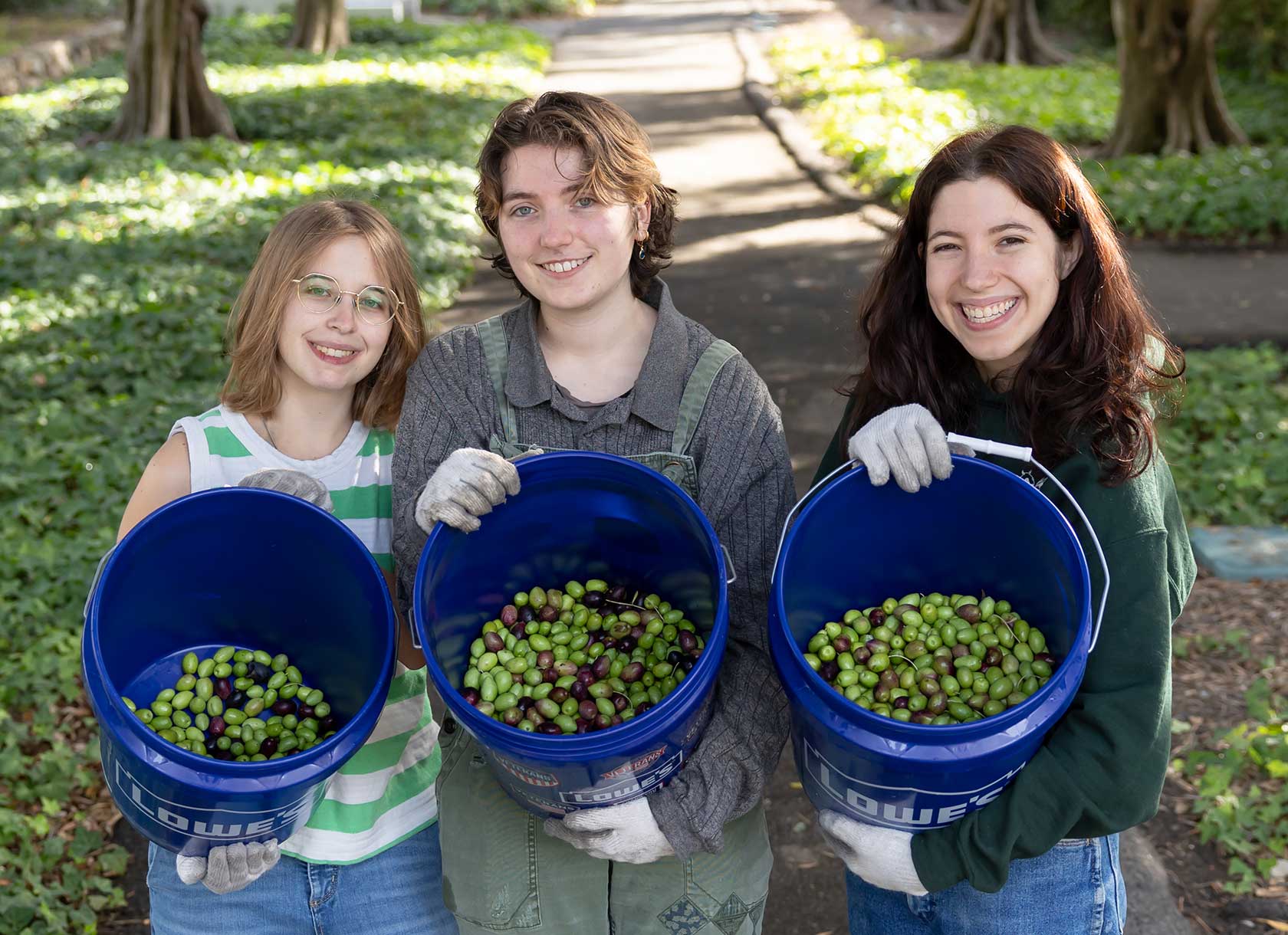By Lauren Mar

On November 10th, Scripps held its biannual Olive Harvest, a tradition that brings the Scripps, Claremont Colleges, and wider Claremont communities together to pick olives from the campus’s trees. The harvested fruit then gets pressed to make olive oil, which has consistently received awards in international competitions.
“The Olive Harvest is important in utilizing our campus assets,” says Joya Salas, the College’s landscape and operations manager. “These olive trees have such a rich history here at Scripps. This tradition allows community members to interact with the campus without rushing through it.”
The practice of harvesting Scripps’ olives began in 2012, when students in Professor of Politics Nancy Neiman’s Core II class, The Politics and Culture of Food, proposed initiatives to increase sustainability on campus. As part of these initiatives, students championed the utilization of edible plants grown on the grounds. The rest has become part of Scripps history.
Tessa Gray ’26, an environmental analysis major and a member of the Scripps Associated Students (SAS) “Sustainabiliteam,” echoes the value of using campus resources to further sustainable practices. In her Core III class, Gray has been making food out of the edible plants on campus. “I think it’s definitely important to appreciate how much fresh food is around you at Scripps, especially in relation to other parts of the Inland Empire,” she says.
Across offices and student groups, everyone at the harvest takes pride in the final product. The types of ripe olives and the subsequent olive oil they produce vary from year to year, making each year’s harvest unique. Salas emphasizes, “We don’t spray these olives. The groundskeepers spend a lot of time working on them. Their hard work and attention pay off, and the oil produced is fantastic.”
At the harvest, volunteers were provided with olive oil samples and muffins made with the Scripps olive oil. Aviva Miller ’24 says, “I have been really excited to come to the harvest because I’m excited that I’ll get to say that I helped create the olive oil.”
At this year’s harvest, hundreds of students, staff, and faculty gathered around the Humanities building throughout the morning. As people worked together, they struck up conversations and got to know each other.
Aviva Maxon ’24 says that she joined the harvest this year because it was her last opportunity to take part. “This is my first time actually picking olives. I have seen the harvest take place before, and it looked fun, so I felt I should do it before I graduate.”
Beyond furthering sustainability initiatives on campus, the Olive Harvest allows for an exchange of experiences through a shared act of labor. When community members from diverse backgrounds come together to partake in the harvest together, they deepen their ties to both the College’s physical campus and the community.
Salas reflects: “Being able to gather as a community is probably the most important thing about the Harvest. Everybody interacts with each other: to take a breather, relax, and get our hands dirty.”

